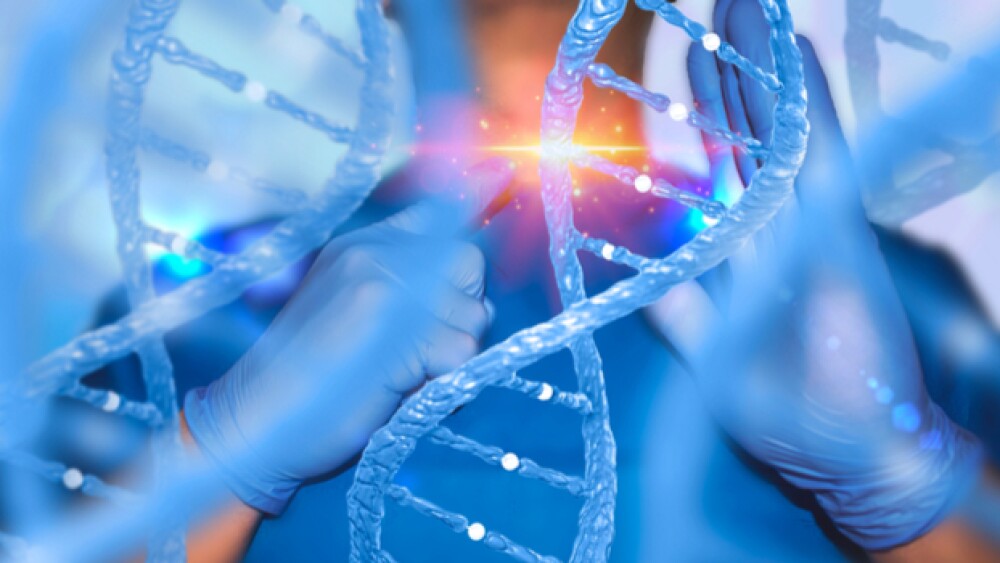CRISPR pioneer Jennifer Doudna has set up shop in San Francisco’s Gladstone Institutes. Doudna, a UC Berkley professor credited with the co-discovery of CRISPR-Cas9 genome editing technique, will focus on the development of new ways to implement the gene-editing technique for disease treatment.
CRISPR pioneer Jennifer Doudna has set up shop in San Francisco’s Gladstone Institutes. Doudna, a UC Berkeley professor credited with the co-discovery of CRISPR-Cas9 genome editing technique, will focus on the development of new ways to implement the gene-editing technique for disease treatment.
Doudna, who is also an investigator with the Howard Hughes Medical Institute, has been named a senior investigator at Gladstone, a non-profit biomedical research organization. In her new role, Doudna will operate a lab focused on using CRISPR to study molecular mechanisms of disease and then “establish first-of-their-kind genome surgery approaches to treat disease by cutting out or modifying harmful DNA,” Gladstone News reported on Wednesday.
While at Gladstone, Doudna will remain with UC Berkeley, as well as the University of California San Francisco. She will also continue with her role at the Innovative Genomic Institute, a joint venture between the two universities, The San Francisco Business Times reported.
Doudna said Gladstone’s “agile environment” will help provide her and fellow researchers with the opportunities to delve into new research. At Gladstone, Doudna will work with Katherine Pollard, who heads the Gladstone Institute of Data Science and Biotechnology. Doudna will continue to focus on the immune system and help shape the “evolution of Gladstone’s long-standing effort in virology and immunology,” Gladstone News said. When Doudna and her team begin their work at Gladstone, they will initially begin research into developing novel curative treatments for genetic disorders. They will begin with neurodegenerative disorders and diseases of the eye, Gladstone News said. Additionally, Doudna and her team will use CRISPR technology to gain a better understanding of the genetics of some cancers, such as glioblastoma, the organization reported. The goal of that understanding will be the development of new targets for potential gene therapies for those indications. For glioblastoma and other brain diseases, Doudna is hoping to discover the most effective way to deliver those gene-editing molecules to the brain in order to treat the disease.
“CRISPR” refers to Clustered Regularly Interspaced Short Palindromic Repeats that occur in the genome of certain bacteria, from which the system was discovered. Cas9 is a CRISPR-associated endonuclease (an enzyme) known to act as the “molecular scissors” that cut and edit, or correct, disease-associated DNA in a cell. Gene therapy essentially transforms cells inside a patient to harness their immune system to fight an invading disease on its own. Initial work on CRISPR was done by Doudna and Emmanuelle Charpentier. Doudna’s groundwork laid the foundation for companies specializing in CRISPR technology to spring up, including Intellia Therapeutics, Caribou Biosciences and Swiss-based CRISPR Therapeutics. Those two companies licensed the CRISPR technology from the University of California. Other CRISPR-based companies have licensed the technology from the Broad Institute, including Editas Medicine, GE Healthcare, Monsanto and Evotec.
Doudna said her ultimate goal for genome surgery is that it will become the norm in treating patients. Gladstone News said Doudna “imagines a day when a patient with a genetic condition will visit a doctor, who will have access to a standard of care that involves genome editing as a treatment.” But, Doudna admitted that’s a “tall order.” Doudna noted there are some obstacles in the way of achieving that goal.
One obstacle could be public trust of the CRISPR therapies. In July, a new study was released that the gene-editing technique could cause “extensive mutations and genetic damage.” The study published in Nature Biotechnology said CRISPR can cause cellular damage that is too difficult to discern by standard DNA tests. The study showed that researchers using CRISPR deleted thousands of DNA bases – some of them that were not close to the spot of the initial edit. That was concerning, the study said, because some of the deletions can silence genes that are supposed to be active, while activating some genes that could potentially cause disease, like cancer.





